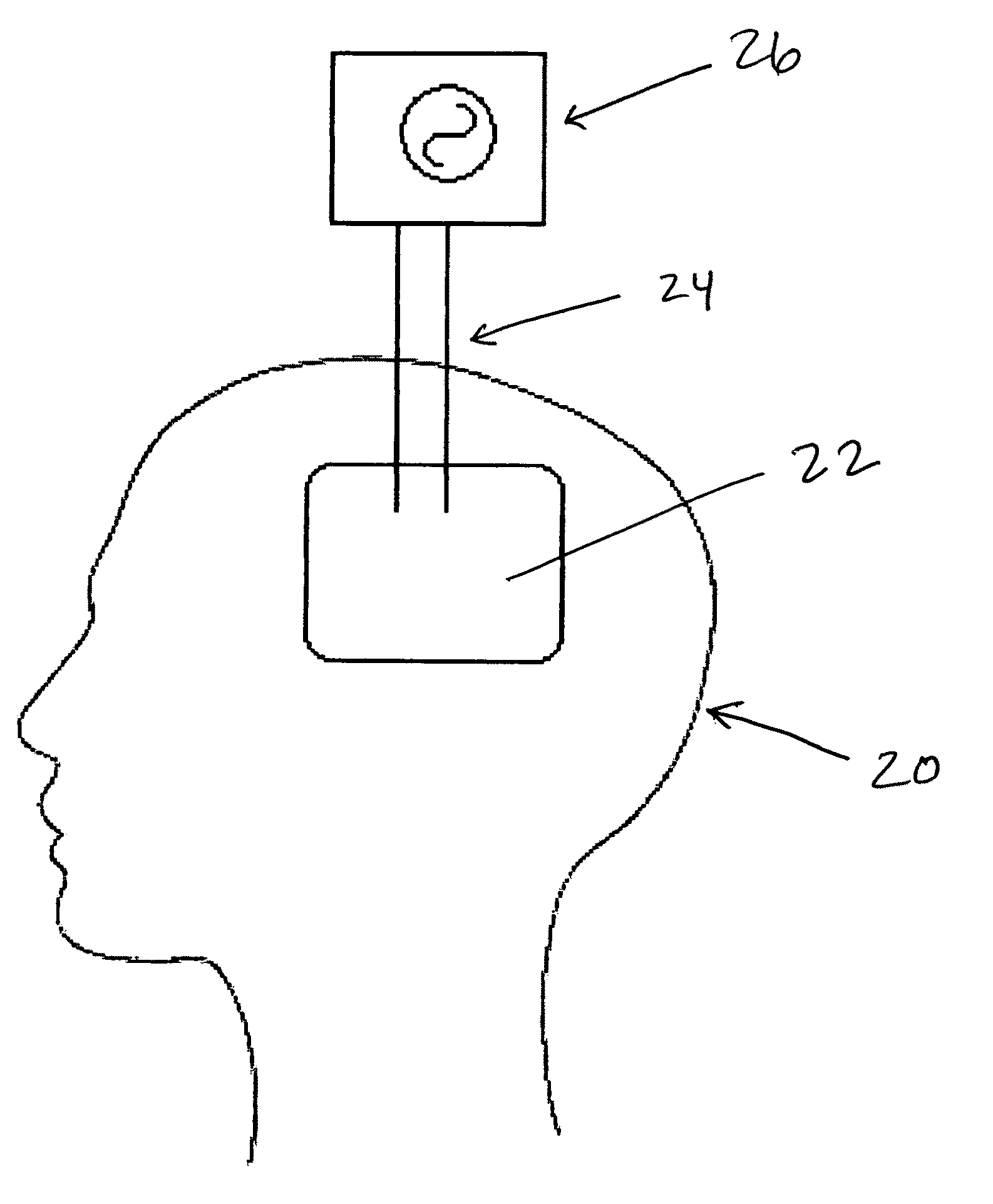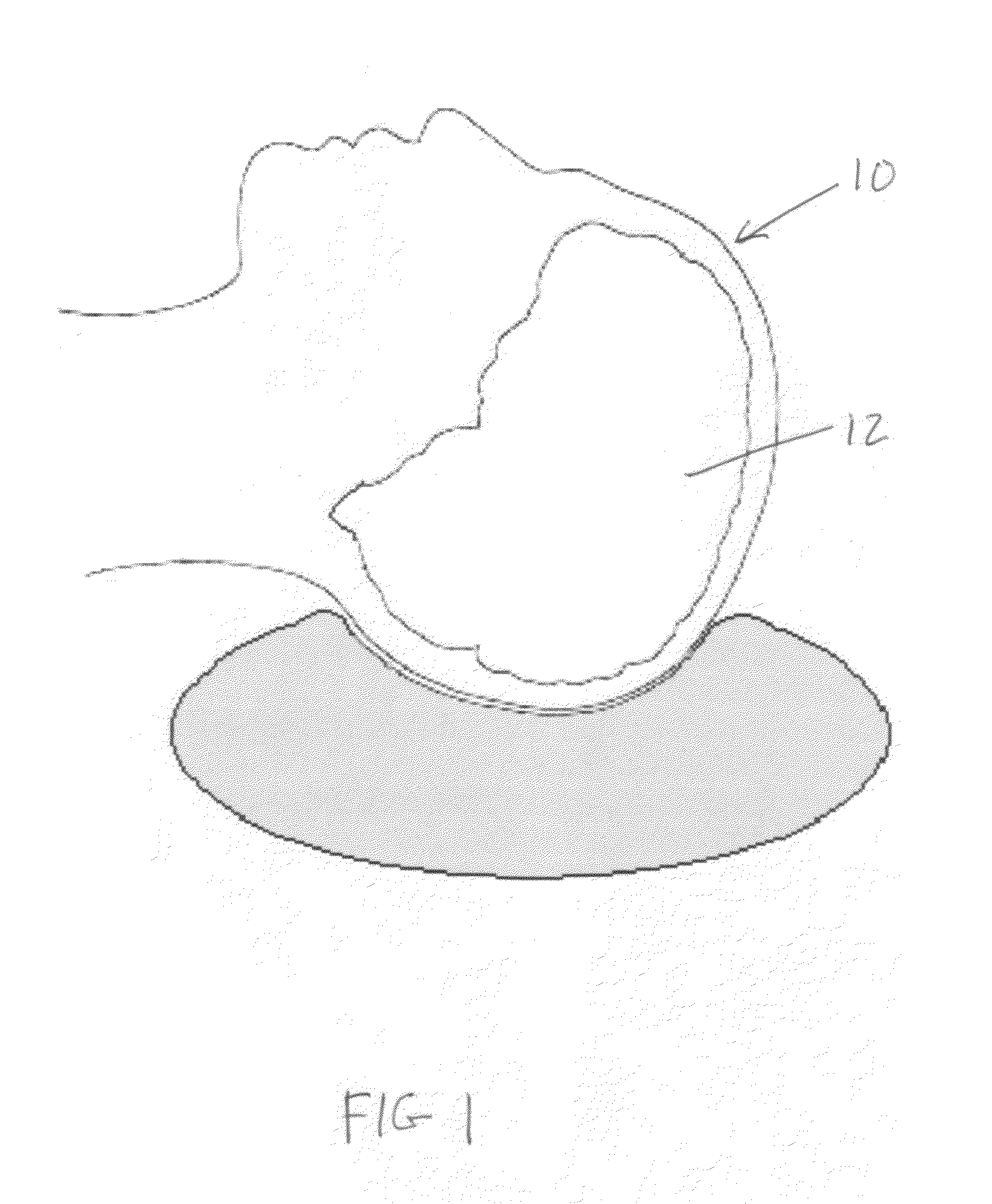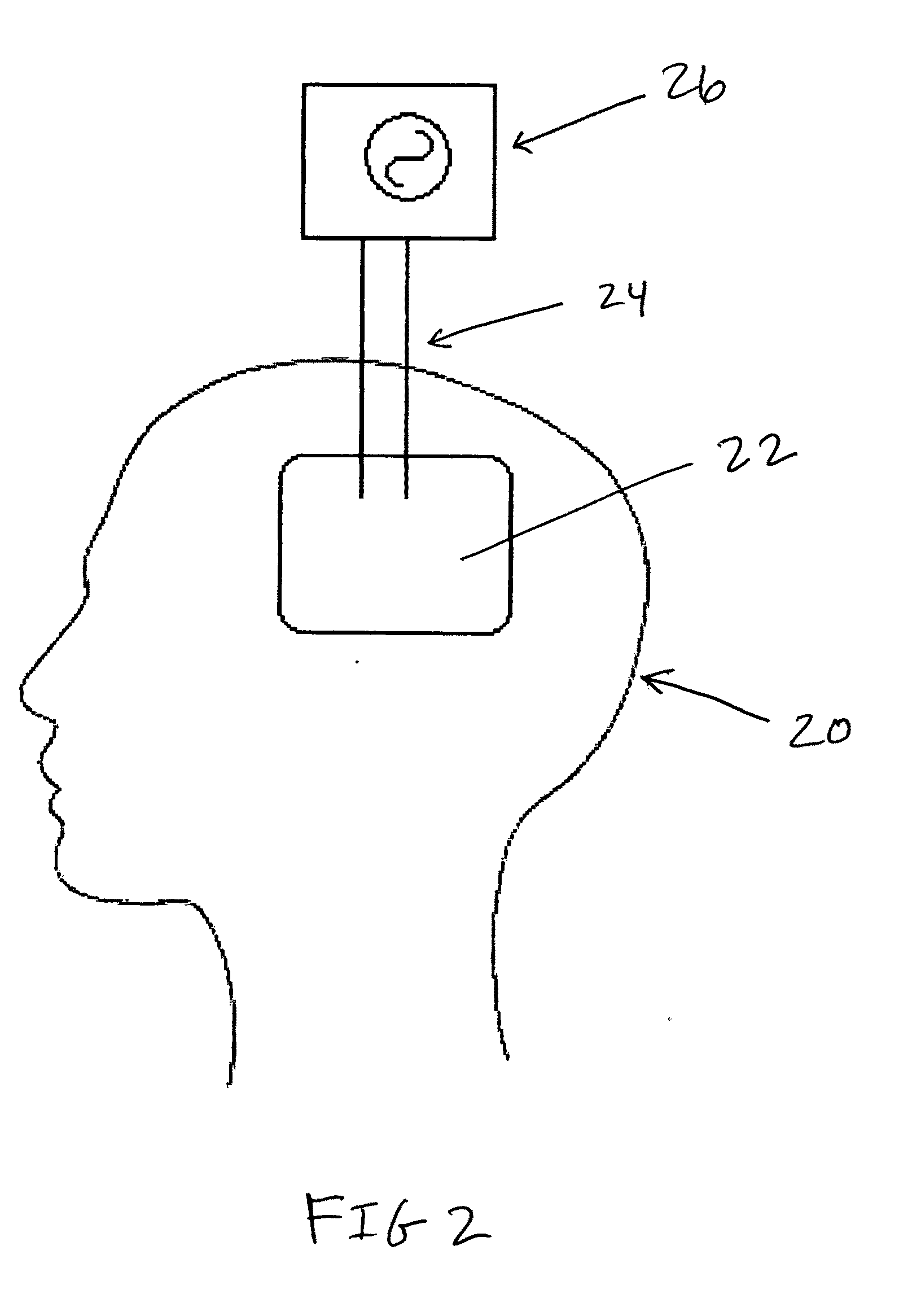Physiologic stimulation for stroke treatment
a stroke and physiologic stimulation technology, applied in the field of neurologic stroke treatment, can solve the problems of neurological function compromise or death, lack of distal blood flow to brain tissues, inhibition and excitatory synapses, etc., and achieve the effects of restoring blood flow, increasing arterial blood flow, and increasing brain venous flow
- Summary
- Abstract
- Description
- Claims
- Application Information
AI Technical Summary
Benefits of technology
Problems solved by technology
Method used
Image
Examples
Embodiment Construction
[0022]Implementation of the source into various design embodiments is possible. For example, FIG. 1 shows pillow-like device 14 that may be fashioned with a vibration source for convenience, patient comfort, effectiveness and affectivity. A conformable structure would ensure a broader and efficient application of the vibration energy to the head. The pillow could be filled with a fluid or other material in order to get efficient transmission of energy through the patients skull to her brain. Likewise, FIG. 2 shows a design that can be formed into an element 22 that makes contact in an area of the head so as to focus the energy towards specific locations within the head. The vibration source 26 can be built into the element 22 or be, as in this case, a separate component with connections 24 to the element 22. Impedance matching the vibration source to the human anatomy 20 would also be of great benefit for efficiency and / or affectivity. Other means of creating conformable sources are...
PUM
 Login to View More
Login to View More Abstract
Description
Claims
Application Information
 Login to View More
Login to View More - R&D
- Intellectual Property
- Life Sciences
- Materials
- Tech Scout
- Unparalleled Data Quality
- Higher Quality Content
- 60% Fewer Hallucinations
Browse by: Latest US Patents, China's latest patents, Technical Efficacy Thesaurus, Application Domain, Technology Topic, Popular Technical Reports.
© 2025 PatSnap. All rights reserved.Legal|Privacy policy|Modern Slavery Act Transparency Statement|Sitemap|About US| Contact US: help@patsnap.com



